Only partway on my sleeping pad, I woke up to the sound of a downpour, with a pit in my stomach over the dream: I was mounted on the silvery gray gelding and we were somersaulting, head over heels, down a big grassy hill. Rolling over on the sleeping pad in a ger at HS28, I drifted back into fitful dreams of crashing and burning with just the final leg—a mere 18 miles—of the 600-mile Mongol Derby to go.

The next morning, my gloves couldn’t grasp the slippery suede reins as my horse thundered down the steep and slick slope in the rain, throwing clumps of mud behind us, his neck outstretched, his nose nearly touching the ground. I shut my eyes tightly for a moment thinking back to my dream, just hours before. I took a deep breath, pushed my legs way out in front of me and leaned back as far as I could. I was on a naadam, or race, horse—one of my best horses of the whole race—but we were in a dead heat racing against another rider to the finish line. My mount was damned if someone was going to pass him—or worse, stop him.
“You OK, Joc?” yelled Ed Archibald, upon probably seeing that my eyes were closed on the downhill. “Is this what a panic attack feels like?” I shouted back.
My team of six, including Ed, his two brothers, Rob and Jack, their cousin Henry Bell, and Michael Turner hadn’t seen another rider for 3 or 4 days when Valeria Ariza, who had been riding solo, caught up to our group coming into HS28, the last station before the finish line, at the end of Day 7. We had an amiable evening, swapping stories, sharing a meal and ger, but now the six of us and Valeria were in a heart pumping, or for me, heart stopping dash to the finish.
The “Archibells,” Mike and I had come a long way from HS15 and the trials and tribulations of Black Beauty—13 stations to be exact, and each leg was unique as the horses.
In this video, Jack explains how the morning of Day 5 started and how he’s feeling after our previous leg (Black Beauty’s leg from the night before). Video courtesy, Henry Bell
On the morning of Day 5, our horses weren’t on the line when it was time to head out, and so we piled into some vans with our saddles to find them. At the next station, there was no vet there to check our horses once we arrived and so we waited for 45 minutes debating on whether or not we should just head out (we waited). We had duds, we had bolters, we crossed rivers, we covered ground.
By the evening of Day 6, I was pretty worn out. I wrenched my back at some point on Day 5, when I overcompensated by pulling my horse up and sharply to the right after he took a clumsy digger in a marmot hole. My back had held up pretty well, but as we prepared to ride out from our fourth station of the day, the pain was pretty intense. Mike gave me a couple sugar tabs to perk me up, and I shuffled over to the horse line.
I usually didn’t ask the herders for help selecting horses, but this time motioned that I was very tired and needed a calm, but fast horse. One of the herders must’ve sensed my desperation and seemed to say “Aha, I have just the horse for you!” as he walked immediately over to a cream-colored gelding with an endearing little fluffy forelock. As soon as we were galloping out of the horse station I knew I had an absolute gem. His gaits were smooth and rhythmic, and he followed the horses in front of him, not caring in the least that one of my hands was pushed forcefully into the side of his neck, holding jumbled reins and the other clutched a fistful of mane as I mustered my best impression of a two-point, flopping along like a rag doll and gritting my teeth.
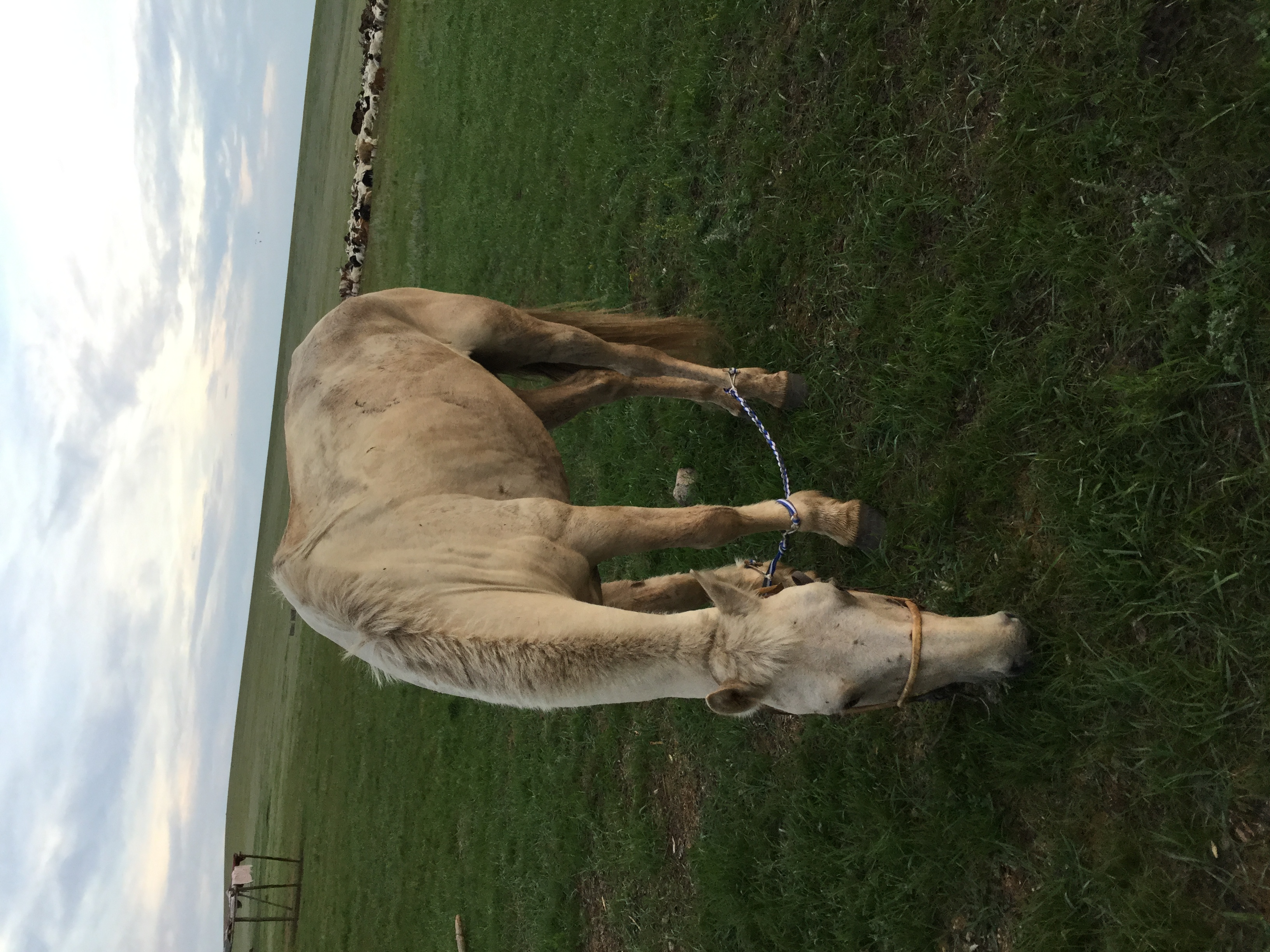
We were aiming for a well that was marked on the map, thinking we could water our horses there and hopefully there would be a family nearby to take us in. There was a collection of gers on top of a hill close to the well, and Mike headed up with his note to see if our large group could stay. The young woman began jumping up and down with excitement about the prospect of guests and sent her husband into town to get supplies for dinner. We grazed and watered our horses and then put them in the small, convenient corral behind the ger.
“Spaghetti?” our charming hostess asked. And with an enthusiastic and simultaneous response from our group, she smiled, nodded and went to work. She prepared a spread like no other. We had a smattering of appetizers to hold us over—fresh jam, something similar to clotted cream, bread and what looked to be yesterday’s dinner of rice and meat accompanied with nori sheets that she motioned to roll up like sushi—while she worked on dinner, chopping vegetables on her cutting board on the floor. She was slicing and dicing everything with such precision and expertise that we might as well have been watching an episode of Top Chef. “She’s really going to town, isn’t she?” asked Rob. We sat around in the ger for close to two hours, as her friends and family stopped by to meet us and have a cup of milk tea. It wasn’t until well after 10:30 pm when she finally presented us with her masterpiece—Spaghetti Bolognese à la Goat, beautifully garnished with a cherry tomato cut in quarters on each plate.
When it was time to go to bed, she motioned to us that she, her husband and their 1-year-old daughter would sleep in their van and we could sleep in the ger, which we adamantly refused. We happily rolled out our sleeping bags outside, doing our best to avoid piles of goat poop. It was easily my favorite night of the whole Derby. I had a good horse, a full belly and there were more shooting stars in the night sky than I could wish upon.
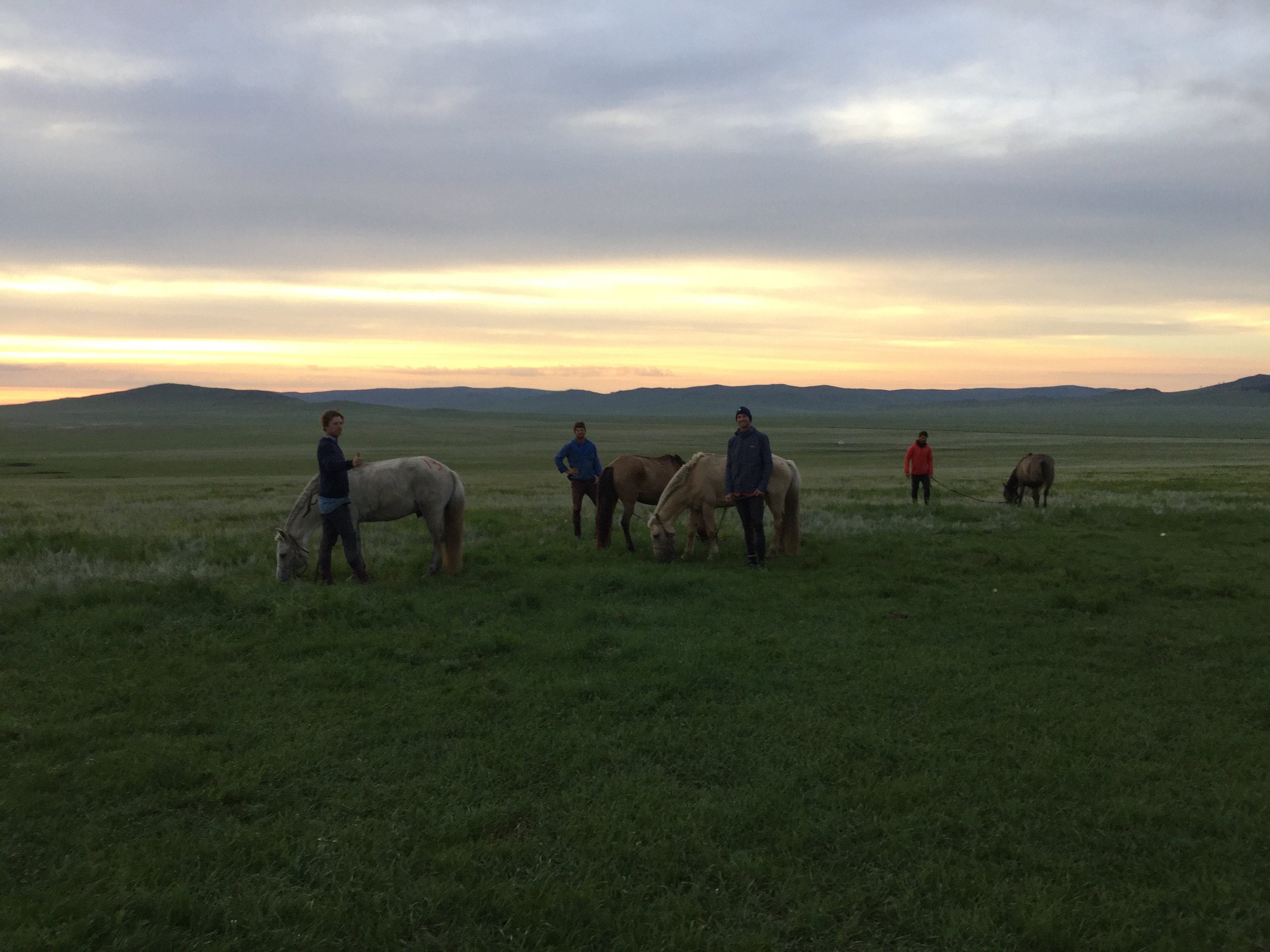
The next morning, we were up at 5 a.m. to graze and water our horses, but our hostess had already been up for who knows how long. She made us delightful cups of coffee with little chocolate sprinkles on top. Then, still in her chic nightdress, she strolled into the corral to help Rob, whose horse was so wild he needed to be hobbled to be saddled. Our seemingly dainty hostess held Rob’s horse by the ears, reprimanding him in a no-nonsense tone as Rob tightened the girth.
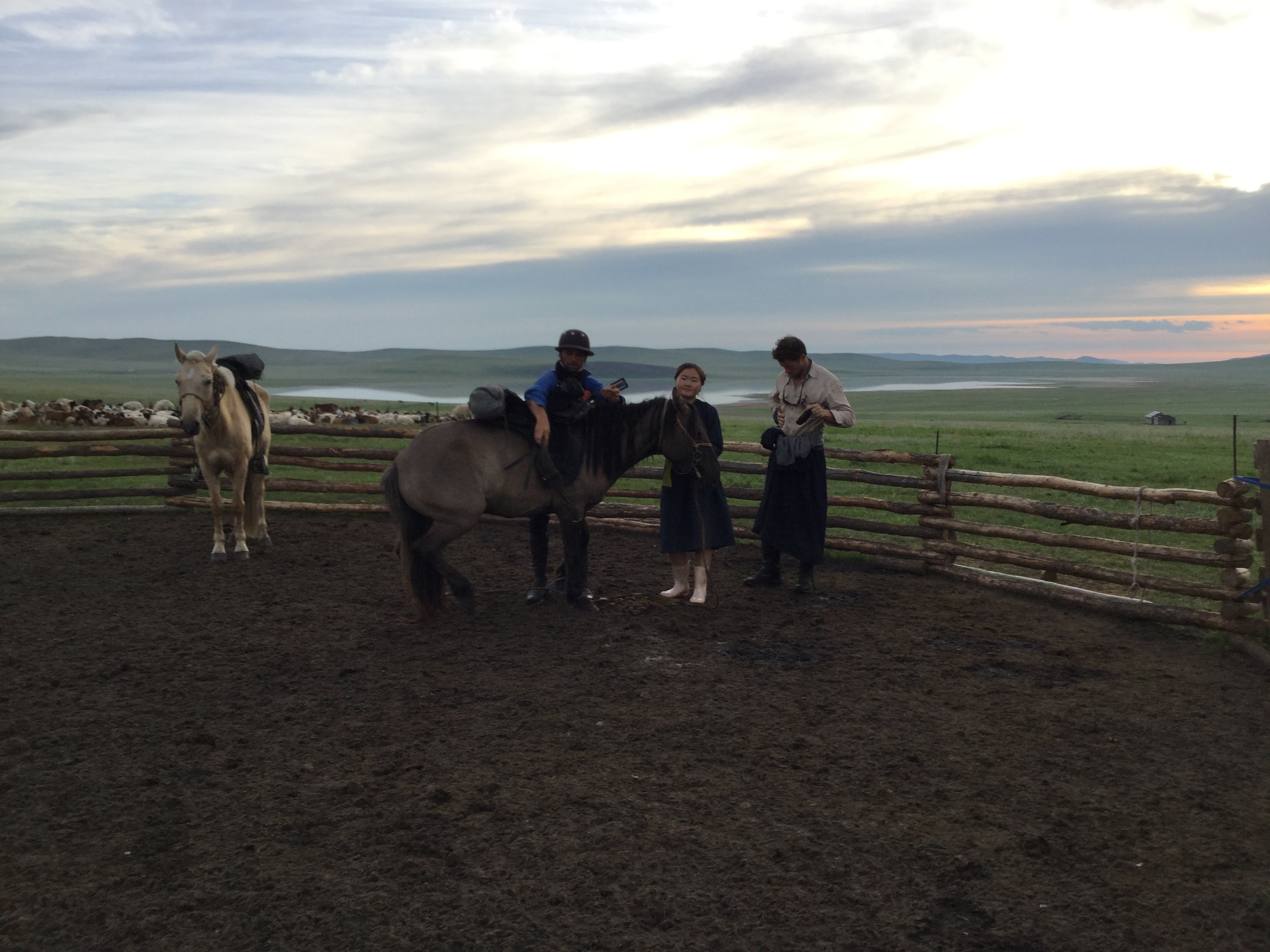
One of the things that struck me the most about this country was how, time and time again, the Mongolian people came to our rescue with a true willingness to help total strangers. In what other place in the world could you walk up to someone’s house, not speak the language, look totally different and know that, without a doubt, they would gladly take you in, feed you, feed your horses and let you sleep under the same roof? It’s truly magical. And I’m not just talking about the four families who hosted us overnight during the derby; we received help all along the way—that we didn’t even ask for. Like on Day 6, when Mike had, as he called it, “a bit of a slide and a dismount” when his horse stepped in a marmot hole and stumbled, breaking the girth in the process. We all dismounted and were standing on the side of the road, while Mike tried to repair his girth with zip ties, when a father and his three sons (driving past with two horses in the bed of a pickup truck) stopped to help us. They wanted nothing in return other than a handshake and a pat on the back.
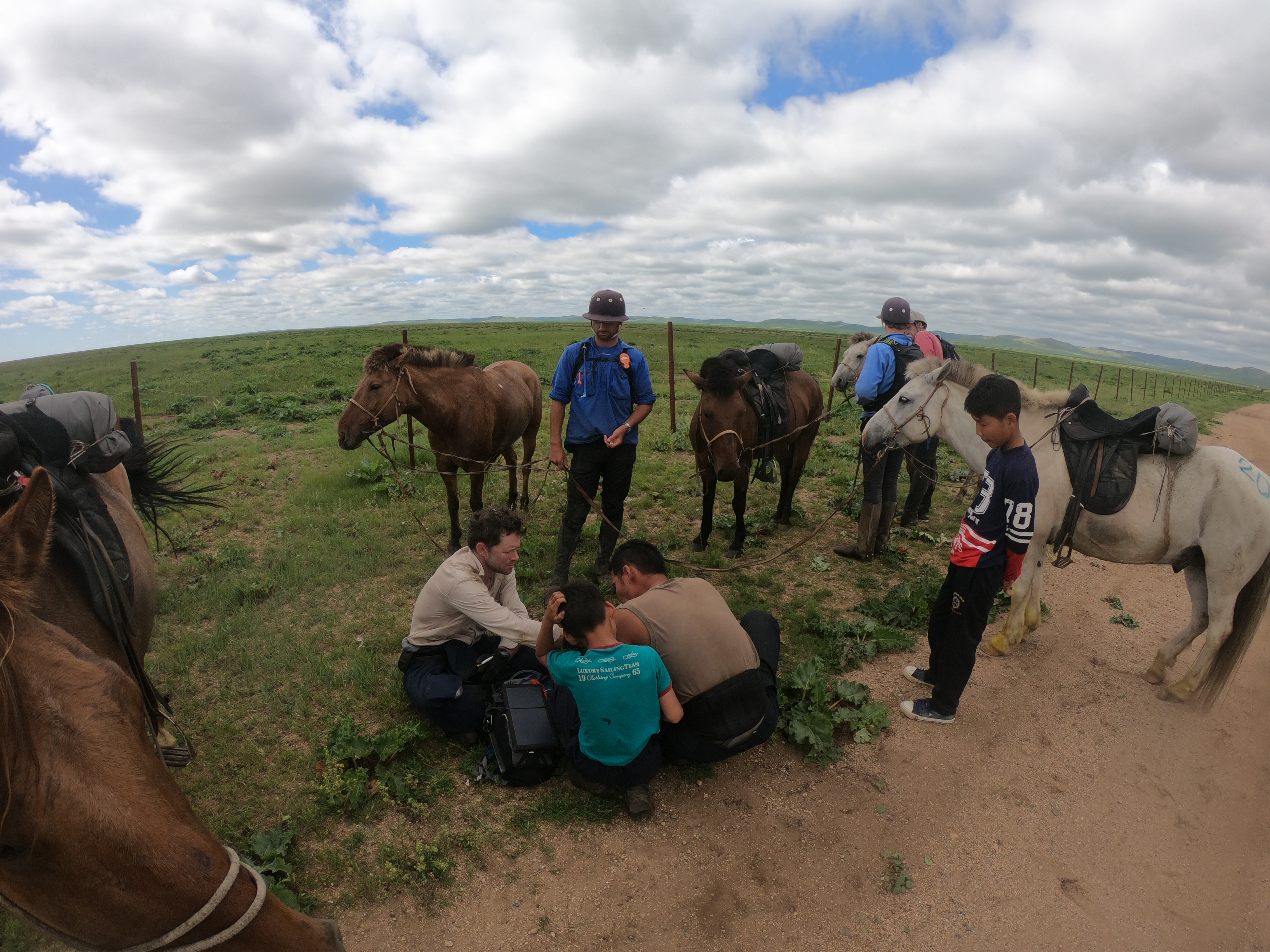
In this video, Mike shares his take on the marmot hole incident and subsequent girth repair. Video courtesy, Henry Bell
After our night under the stars, Day 7 was so full of promise and we fully intended to finish the race by 8 p.m. that evening. But as we’ve learned, in the Derby, anything can and will happen. The next leg that should’ve taken us three hours took us over five and just like that our chances of finishing that day slowly slipped away.
From the outset of our final leg, it was clear it would be a racing finish between our team and Valeria. This leg’s horses were so fast and fit that we covered the 18 miles in about an hour and 15 minutes. For me, it was an hour-and-15-minute white-knuckled ride up and down hills, with plenty of opportunity for somersaulting. The horses galloped in a tight group and, at one point, Valeria’s horse and mine clipped heels and almost crashed, as hers made a beeline out the other side of the pack. Right up until the end there were four of us close to overtaking Valeria, but two of the horses in our group weren’t quite as fit and fell behind. So we pulled up and waited, so we could cross together. Well—actually—I couldn’t pull up, but Jack turned his horse sharply to the left in front of me, causing my horse to slam into his like we were in a demolition derby. This, for all intents and purposes, got the job done. Rob, Ed, Jack, Henry, Mike and I finished in equal ninth place—at 8 a.m. on the morning of Day 8, 170 hours and 28 urtuus after beginning this adventure—and later received the Best Team Award.
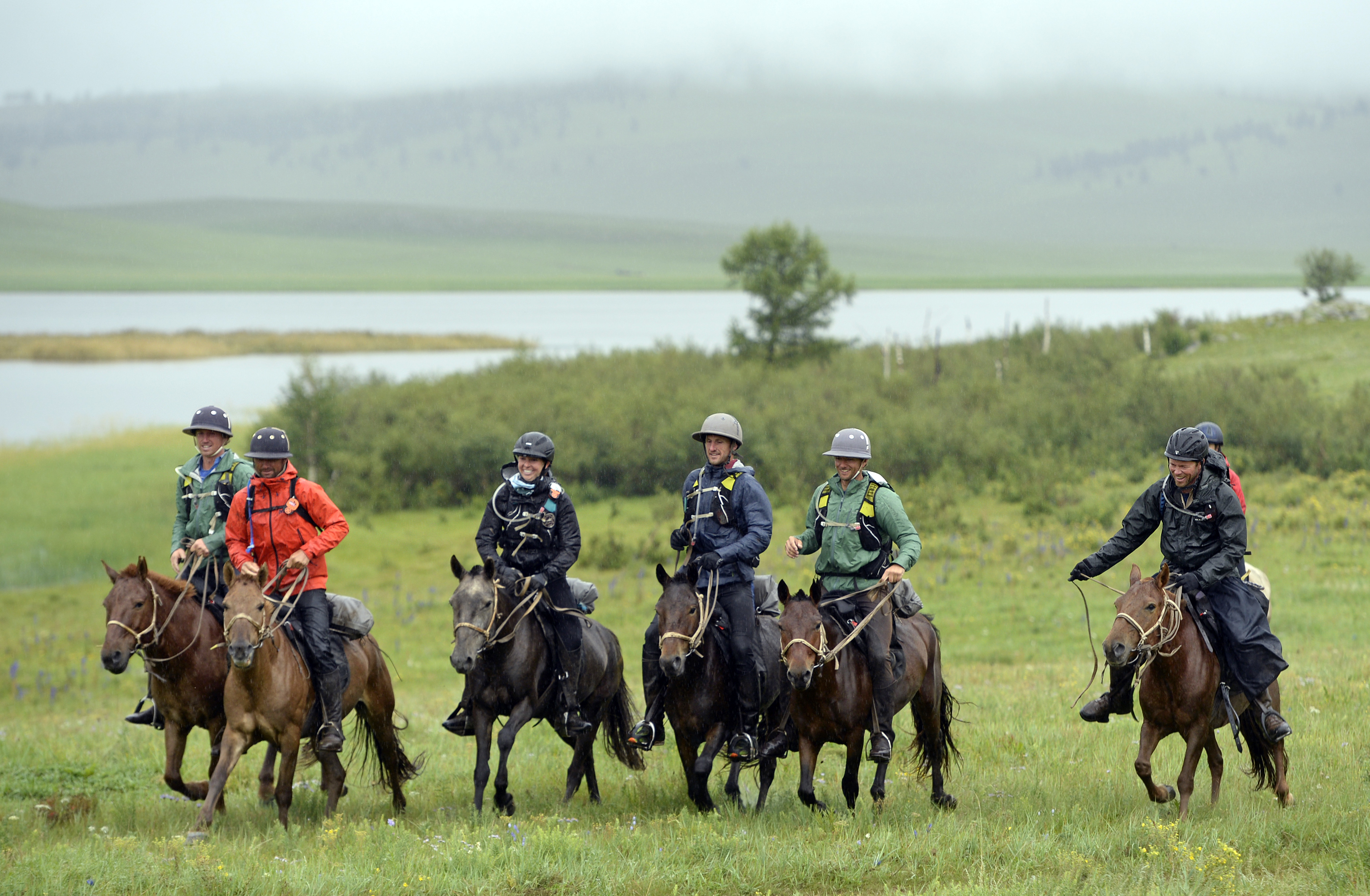
For a race with a lot of unknowns and what ifs, I couldn’t be happier with the way things turned out. I left Mongolia with the satisfaction of finishing the derby in the top 10 with no vet penalties, but more importantly, with five new friends, a greater understanding of Mongolian horse culture and nomad life—and a lot of wild stories to share.
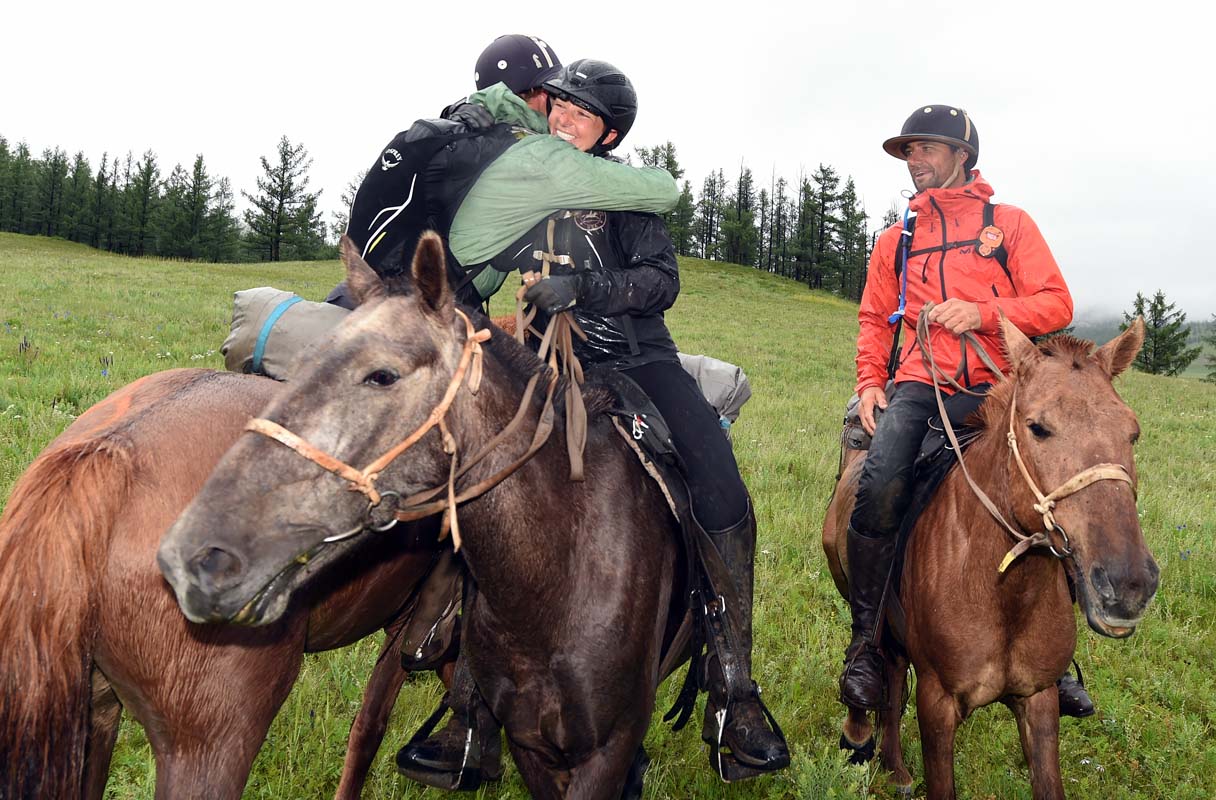
Friends, family and acquaintances have already asked me if I would do it again. I’m not so sure about that, but there’s a rumor that a similar race in Patagonia is in the works, and I certainly have my eye on it.
Read Part I, ‘Everybody Has a Plan Until They Get Punched in the Mouth,’ here.
Read Part II, ‘Slow and Steady Does Not Win the Race,’ here.
For more on the Mongol Derby, stay tuned for Jocelyn’s feature article about her adventure in Practical Horseman’s November 2018 issue.










